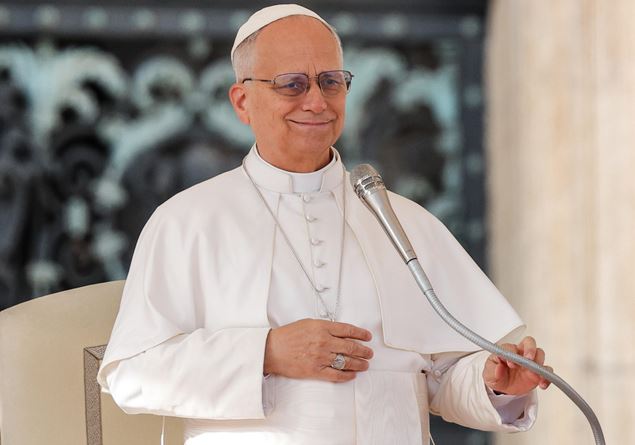Take a stand. Leo XIV invited this during the general audience on Saturday 22 November in St. Peter’s Square in Rome on the occasion of the Jubilee of Choirs and Chorales. To let yourself be ignited by the fire of God’s love on earth as did a great little American woman, Dorothy Day, an American activist who totally dedicated herself to the last of the early twentieth century.
We report the complete Catechesis of the Holy Father.
Dear brothers and sisters, good morning and welcome! For many of you, being in Rome today is the realization of a great desire. For those who are on a pilgrimage and arrive at their destination, it is important to remember the moment of decision. Something, at the beginning, moved within you, perhaps thanks to the word or invitation of someone else. Thus, the Lord himself took you by the hand: a desire and then a decision. Without this, you wouldn’t be here. It is important to remember this.
Jesus expects a lot from us.
And what we heard from the Gospel just now is also important: «To whomever much is given, much will be asked; to whom much was entrusted, much more will be required.” Jesus says this to his closest disciples, to those who were with him the most. And we too have received a lot from the journey we have experienced so far, we have been with Jesus and with the Church and, even if the Church is a community with human limitations, we have received a lot. So, Jesus expects a lot from us. It is a sign of trust, of friendship. He expects a lot, because he knows us and knows that we can!
Jesus came to bring fire.
Jesus came to bring fire: the fire of God’s love on earth and the fire of desire in our hearts. In a certain way, Jesus takes away our peace, if we think of peace as an inert calm. This, however, is not true peace. Sometimes we would like to be “left alone”: that no one disturbs us, that others no longer exist. It is not the peace of God. The peace that Jesus brings is like a fire and asks a lot of us. It asks us, above all, to take a stand. In the face of injustices, inequalities, where human dignity is trampled upon, where the fragile have their say, take a stand. To hope is to take a stand. To hope is to understand in the heart and show in deeds that things must not continue as before. This too is the good fire of the Gospel.
Dorothy Day.
I would like to remember a great little American woman, Dorothy Day, who lived in the last century. He had fire inside. Dorothy Day took a stand. She saw that her country’s development model did not create the same opportunities for everyone, she understood that the dream for too many was a nightmare, that as a Christian she had to get involved with workers, with migrants, with those rejected by an economy that kills. He wrote and served: it is important to unite mind, heart and hands. This is taking a stand. He wrote as a journalist, that is, he thought and made people think. Writing is important. And also read, today more than ever. And then Dorothy served meals, gave clothes, dressed and ate like those she served: she united mind, heart and hands. In this way, hoping is taking a stand.
Dorothy Day involved thousands of people. They have opened houses in many cities, in many neighborhoods: not large service centers, but points of charity and justice where they can call each other by name, get to know each other one by one, and transform indignation into communion and action. This is how peacemakers are: they take a stand and bear the consequencesbut they move on. To hope is to take a stand, like Jesus, with Jesus. His fire is our fire. May the Jubilee revive it in us and in the whole Church!
Photo Ansa


